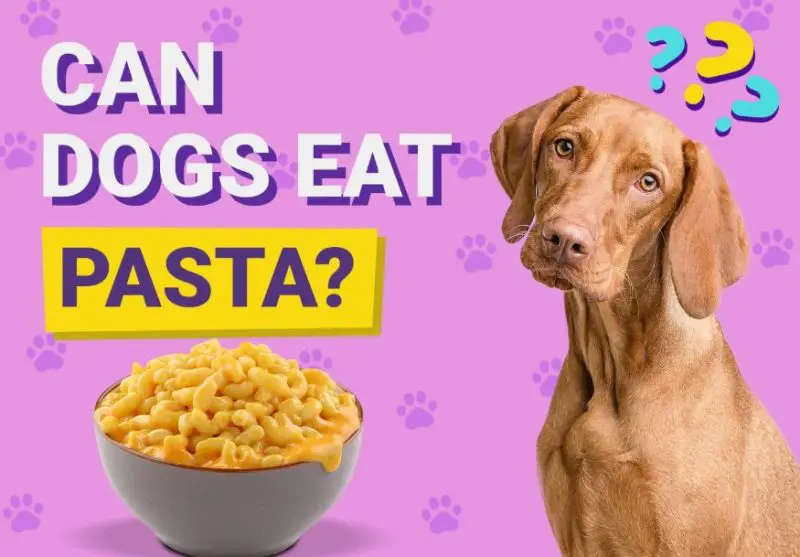Pasta is a staple food in many households, beloved for its versatility and ability to complement a wide variety of flavors. But if you have a furry friend at home, you might be wondering: Can dogs eat pasta? While pasta itself is not toxic to dogs, there are several important factors to consider before sharing your favorite dish with your pet. Understanding the potential benefits and risks will help you make an informed decision about including pasta in your dog’s diet.
This ultimate guide will delve into the safety of feeding pasta to dogs, its nutritional value, possible health concerns, and alternative food options that may be better suited for your canine companion. Read on to discover everything you need to know before letting your dog enjoy a plate of pasta!
Can Dogs Eat Pasta? The Short Answer

Yes, dogs can eat plain pasta in moderation. Pasta made from simple ingredients like flour and water is generally safe for dogs. However, pasta does not provide essential nutrients that dogs require, making it an unnecessary addition to their diet. While an occasional small serving of plain, cooked pasta is unlikely to harm your pet, feeding pasta frequently or with unhealthy additions could lead to health issues. Additionally, pasta with sauces, cheese, or seasonings can be dangerous due to the presence of toxic ingredients such as garlic, onions, and excessive salt.
Nutritional Value of Pasta
1. Ingredients in Pasta
Traditional pasta is made from wheat flour, water, and sometimes eggs. There are also various types of pasta available, including whole wheat, gluten-free, and vegetable-based pasta, each with slightly different nutritional profiles.
2. Nutrients in Pasta
Pasta primarily provides the following nutrients:
- Carbohydrates: Pasta is a high-carb food that provides energy, but excessive carb intake can lead to weight gain in dogs.
- Protein: Egg-based pasta contains some protein, but the amount is minimal compared to other protein sources like meat or fish.
- Fiber: Whole wheat pasta contains more fiber, which can aid digestion and support gut health.
- Vitamins & Minerals: Some pasta contains trace amounts of iron, B vitamins, and folic acid, but these nutrients are not present in significant amounts to benefit dogs.
Potential Benefits of Pasta for Dogs
While pasta is not a necessary or highly beneficial part of a dog’s diet, there are a few minor advantages when served correctly and in moderation:
1. Source of Energy
Carbohydrates in pasta provide a quick source of energy, which may be beneficial for highly active dogs. However, since dogs primarily rely on protein and fat for energy, pasta should not be a primary source of nutrition.
2. Gentle on the Stomach
Plain, boiled pasta can be a suitable option for dogs with mild stomach issues or those recovering from an illness. Because pasta is bland and easy to digest, it can serve as a temporary meal option in specific cases, but it should not be a long-term dietary replacement.
3. Encouraging Picky Eaters
Some dogs may be picky eaters, and mixing a small amount of pasta with their regular food can encourage them to eat. However, it’s essential to ensure they receive balanced nutrition alongside this occasional treat.
Risks of Feeding Pasta to Dogs
1. High in Carbohydrates
While carbohydrates provide energy, dogs do not require as many carbs as humans. A diet that is too high in carbohydrates can lead to obesity, diabetes, and other metabolic issues in dogs. Excessive carb intake can also result in sluggishness or digestive problems.
2. Sauce and Seasoning Dangers
Many pasta dishes contain ingredients that are harmful to dogs, including:
- Garlic & Onions: These common pasta sauce ingredients are highly toxic to dogs and can cause anemia.
- Salt: Too much salt can lead to dehydration, electrolyte imbalances, and sodium poisoning.
- Dairy Products: Many creamy pasta sauces contain cheese, milk, or butter, which can cause digestive upset in lactose-intolerant dogs.
- Spices & Oils: Some seasonings, such as black pepper or chili, may cause stomach irritation, while excessive oil can contribute to pancreatitis.
3. Gluten Sensitivity and Allergies
Some dogs may have gluten allergies or sensitivities, which can lead to digestive upset, skin issues, or general discomfort. If your dog experiences itching, bloating, or diarrhea after eating pasta, it may be best to avoid wheat-based products altogether.
4. Potential Choking Hazard
Long pasta varieties like spaghetti can pose a choking hazard, especially for small dogs. Cutting pasta into smaller pieces before serving can reduce this risk.
Best Practices for Feeding Pasta to Dogs
1. Serve Plain, Cooked Pasta
When feeding pasta to your dog, it should always be plain, fully cooked, and free from any additives, spices, or sauces. Overcooked pasta is softer and easier to digest than al dente pasta.
2. Offer Small Portions
Pasta should only be given in small amounts as an occasional treat rather than a regular part of your dog’s diet. Overfeeding pasta can lead to unnecessary weight gain and nutritional imbalances.
3. Choose Healthier Pasta Alternatives
If you want to offer pasta to your dog, consider healthier alternatives such as whole wheat pasta, lentil pasta, or grain-free varieties. These options may provide additional nutrients and fiber while reducing gluten exposure.
4. Monitor for Allergic Reactions
Always observe your dog after introducing a new food. If your dog exhibits signs of digestive upset, itching, or any unusual behavior, discontinue pasta and consult a veterinarian.
Healthier Alternatives to Pasta for Dogs
1. Vegetables
Instead of pasta, consider offering dog-friendly vegetables like:
- Carrots
- Sweet potatoes
- Green beans
- Pumpkin These provide vitamins, minerals, and fiber without the excess carbohydrates found in pasta.
2. Protein Sources
Since dogs thrive on protein, lean meats such as chicken, turkey, and fish are much better meal options.
3. Dog-Specific Treats
Many commercial dog treats are formulated with the right balance of nutrients and are a safer choice than human foods.
Frequently Asked Questions
1. Can Dogs Eat Pasta Every Day?
No, pasta lacks essential nutrients that dogs need and should be given only occasionally.
2. Is Whole Wheat Pasta Better for Dogs?
Yes, whole wheat pasta is a slightly healthier choice due to its higher fiber content, but it should still be served in moderation.
3. Can Puppies Eat Pasta?
Puppies require a well-balanced diet to support their growth, making high-quality puppy food a better choice than pasta.
Conclusion
While pasta can be a safe and occasional treat for dogs when served plain and in small amounts, it should never replace a well-balanced, protein-rich diet. Avoid giving pasta with sauces, seasonings, or high-fat ingredients, as these can be harmful. If in doubt, always consult your veterinarian before introducing new foods to your dog’s diet. By following these guidelines, you can keep your furry friend healthy while allowing them to enjoy a small taste of your favorite meal!






